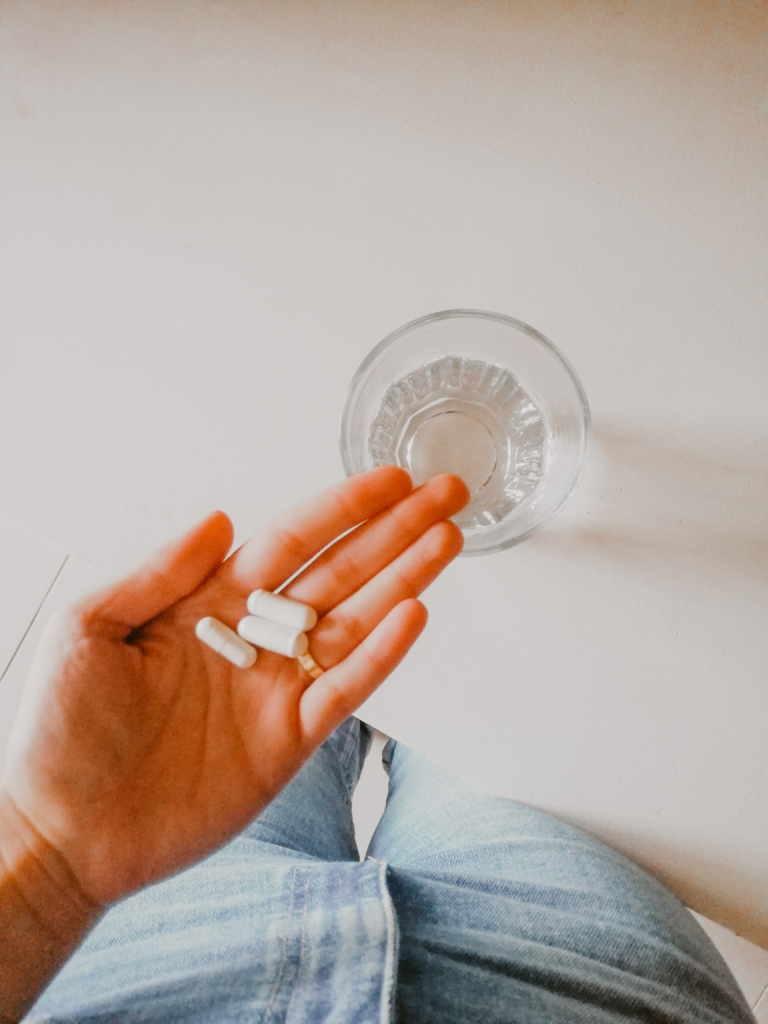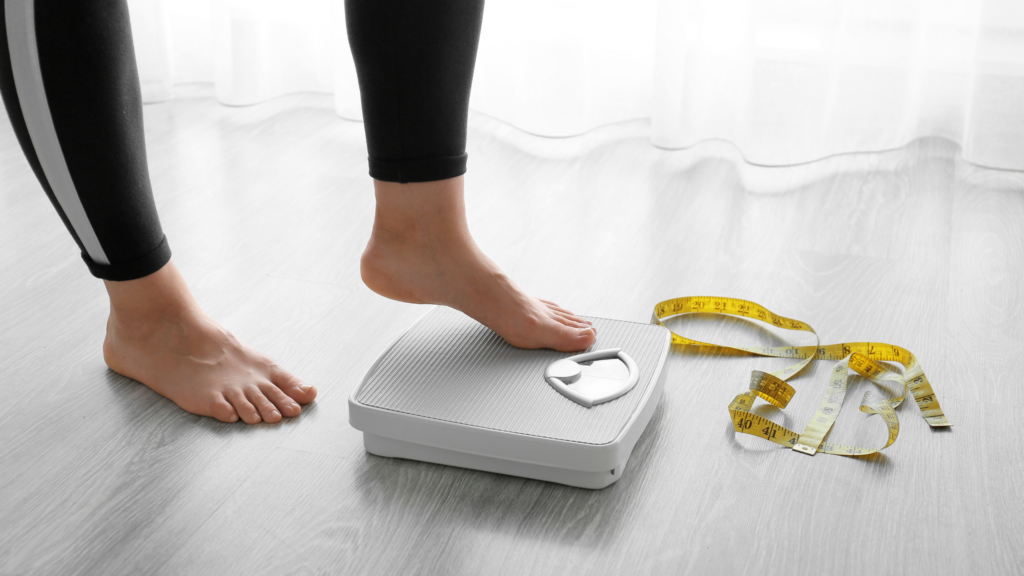6 Supplements You Probably Need & Why a Multivitamin Won’t Cut It
Published on February 14, 2023 by Belle Kuhn

Taking a daily multivitamin can often supply a false sense of nutritional security. The truth is, you may be overtaxing your body by processing an excessive amount of certain nutrients. Depending on the quality of the product and the health of your gut, you may also not be absorbing the nutrients you need and just wasting your money on expensive supplements.

Let’s hone in on the most common nutritional deficiencies and what really needs to be supplemented outside of a healthy, complex diet.
The 6 Supplements At A Glance:
1. Magnesium
2. Vitamin D
3. Trace Minerals
4. B-Complex
5. Essential Fatty Acids
6. Probiotics
1. Magnesium
Magnesium is an essential nutrient that your body cannot make on its own, so it has to come from your diet or supplementation. According to the National Institute of Health, it plays a key role in muscle and nerve function, bone health, regulated blood pressure and DNA formation. It’s also essential for balanced sleep cycles and hormone health. Most Americans are deficient in this vital mineral and aren’t even aware that it could be the root cause of their symptoms.
With so many options on the market, it can be difficult to find the right supplement for your personal needs. There are different types of magnesium and several ways to absorb it properly. This chart will help you choose which one is right for you.
Signs of Magnesium Deficiency
- Muscle cramps
- Irregular heart rate/palpitations
- Insomnia
- Migraines/headaches
- Fatigue
- Digestive issues
- Restless Leg Syndrome (RLS)
Type
Special Function
Delivery
Magnesium Glycinate
General health, improved sleep, decreased anxiety
Oral capsule
Magnesium Citrate
Natural laxative, bowel regularity
Dissolvable powder in water
Magnesium Malate
Improved energy and mitochondrial function
Oral capsule
Magnesium Oil
Muscle cramps, nerve function, headaches, higher absorption rate
Topical
Epsom Salt
Stiff muscles, relaxation, restful sleep, higher absorption rate
Bath Soak
| Type | Special Functions | Delivery |
|---|---|---|
| Magnesium Glycinate | General health, improved sleep, decreased anxiety | Oral capsule |
| Magnesium Citrate | Natural laxative, bowel regularity | Dissolvable powder in water |
| Magnesium Malate | Improved energy and mitochondrial function | Oral Capsule |
| Magnesium Oil | Muscle cramps, nerve function, headaches, higher absorption rate | Topical |
| Epsom Salt | Stiff muscles, relaxation, restful sleep, higher absorption rate | Bath Soak |
2. Vitamin D
This just might be the most important vitamin for immunity. Widely known for its positive effect on bone health, we now know that a deficiency of Vitamin D is associated with an increased risk for autoimmune disorders and a higher susceptibility to infections. It’s also linked to almost all chronic conditions. Even if your western doctor tells you your levels are not deficient, that doesn’t mean they’re optimal. Unless you’re supplementing with a high-quality source, you’re likely to be deficient even if you’re spending plenty of time in the sun.
It’s generally safe to supplement with 2,000-5,000IU of highly bioavailable D3 per day. However, Vitamin D is fat-soluble, so you can have too much of a good thing. The only way to know exactly how much you need is to get your levels tested. Working with a functional medicine practitioner is the best way to pinpoint the appropriate dosage for you.
You can read more about the benefits of Vitamin D and how to supplement it here.

3. Trace Minerals
Along with macro-minerals like sodium, potassium, magnesium and calcium, we also need micro-minerals for overall body function. These trace minerals are responsible for billions of mini electrical impulses daily. Every muscle in your body, including your heart, requires all 9 trace minerals to function properly.
The 9 Essential Trace Minerals
1. Chromium
2. Copper
3. Fluoride
4. Iodine
5. Iron
6. Manganese
7. Molybdenum
8. Selenium
9. Zinc
Signs of Trace Mineral Deficiency
- Anemia
- Heartbeat irregularity
- Fatigue
- Getting sick often
- Slow metabolism
- Muscle weakness
- Brain fog
Trace minerals are water-soluble, so you don’t have to worry about overdoing it. Your body will take what it needs and excrete any excess. An easy way to make sure you’re getting enough is adding a few drops of trace minerals to your morning glass of water. This form of consumption ensures easy absorption so they get transported to where they’re needed the most.
Start with 2 drops and increase by 2 drops per day for 5 days. If your stools become loose, revert to the dosage of the previous day and try 2 additional drops before bed.
Along with macro-minerals like sodium, potassium, magnesium and calcium, we also need micro-minerals for overall body function. These trace minerals are responsible for billions of mini electrical impulses daily. Every muscle in your body, including your heart, requires all 9 trace minerals to function properly.
The 9 Essential Trace Minerals
1. Chromium
2. Copper
3. Fluoride
4. Iodine
5. Iron
6. Manganese
7. Molybdenum
8. Selenium
9. Zinc
Signs of Trace Mineral Deficiency
- Anemia
- Heartbeat irregularity
- Fatigue
- Getting sick often
- Slow metabolism
- Muscle weakness
- Brain fog
Trace minerals are water-soluble, so you don’t have to worry about overdoing it. Your body will take what it needs and excrete any excess. An easy way to make sure you’re getting enough is adding a few drops of trace minerals to your morning glass of water. This form of consumption ensures easy absorption so they get transported to where they’re needed the most.
Start with 2 drops and increase by 2 drops per day for 5 days. If your stools become loose, revert to the dosage of the previous day and try 2 additional drops before bed.
4. B-Complex

B-vitamins are all the rage these days and for good reason. B-12 in particular is famous for its noticeable, positive effect on mood, energy and endurance. However, the other B-vitamins deserve their spot in the limelight too.
There are 8 B-vitamins all together. You might recognize some of them by other names such as thiamin, riboflavin, biotin, niacin, folic acid, pantothenic acid, and pyridoxine.
All of these assist enzymes in metabolizing nutrients from food so they can turn into vital oxygen and fuel for the body. They also help maintain vision, digestive regularity, blood cell counts, nerve function, muscle tone and cardiovascular health.
B-vitamins are mostly found in animal products, so people who consume mostly plant-based diets are at high risk for deficiency. With little to no risk of overdose and endless health implications, the majority would benefit from supplementing with a high-quality B-Complex.
5. Essential Fatty Acids
These nutritional gems work on a molecular level to influence many aspects of health and wellbeing. They play a key role in heart health, illness recovery, brain function, gut microbiome, hormone balance and joint maintenance. They can even help you bounce back from a late party night. Incorporating just a small amount of essential fatty acids on a regular basis can have a big impact.
Not all supplements are created equal, and that especially applies when it comes to fatty acids. Supplements derived from krill oil or cod liver oil are the most bioavailable sources. Depending on the amount of essential fatty acids in your diet, you may need to take between 1-3 capsules per day.
6. Probiotics
Mainstream media may have you convinced that you’re getting all the probiotics you need from a daily serving of yogurt. However, with over-processed dairy and all the added sugars, you may be doing more harm than good and not getting all the probiotics your gut needs.
Here are a few things to keep an eye out for when choosing a probiotic:
- Quality of Brand
- Does the brand pride themselves on well-sourced ingredients?
- Are they 3rd party tested for quality and ingredient verification?
- Do they have amazing reviews?
- Variety
- Multiple strains of healthy bacteria and cultures like Bacillus coagulans, Saccharomyces boulardii, Bacillus subtilis, Lactobacillus plantarum, and Bacillus clausii
- Prebiotics are also needed for probiotics to do their job properly.
Examples of Prebiotics: garlic, artichoke, onion, banana, apple, oat & other insoluble fiber powders.
- Amount of CFUs (Colony Forming Units)
- 10-20 Billion CFUs per serving
- Live and Active Cultures
- Make sure it reads, “Live and active..” and not “made with active…”
- Hidden Sugar
- Check the nutrition facts label under carbs for added sugars. None is best, but under 5g is still ok.
While the best sources of nutrients are always from food, sometimes we need a little boost to make sure we’re getting the external support needed to feel our best and prevent disease.
We carry most of these supplements in-house or on our online pharmacy. You’re welcome to give us a call at our Boulder acupuncture clinic or shoot us a message any time for questions. We’re always here to help!






